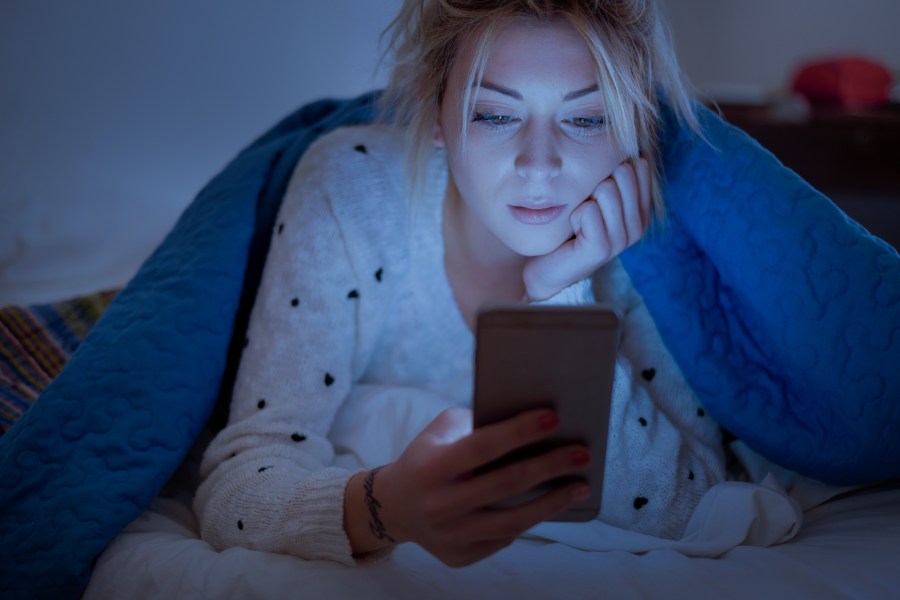We’ve all experienced a sleepless night or two, tossing and turning until the morning light. But when lack of sleep becomes a regular occurrence, it can have a serious impact on our productivity, affecting our ability to focus, make decisions, and get things done.
In this article, we’ll explore the causes and effects of sleep deprivation, and provide practical tips for dealing with it to improve your productivity.
Understanding Sleep Deprivation

Before we dive into strategies for dealing with sleep deprivation, it’s important to understand what it is and how it affects our bodies and minds. Sleep deprivation is defined as not getting enough sleep to meet our individual needs, which typically range from 7-9 hours per night for adults.
Causes of sleep deprivation can be both external and internal. External factors may include noise, light, or an uncomfortable sleep environment. Internal factors may include stress, anxiety, or certain medical conditions.
The effects of sleep deprivation on productivity can be significant. It can lead to decreased alertness, impaired memory and cognitive function, and difficulty concentrating, which can ultimately impact our ability to perform at work and in our personal lives.
Scientific research has shown that sleep deprivation can have a serious impact on our productivity, and that getting enough sleep is crucial for our overall health and well-being. For example, a study published in the Journal of Occupational Health Psychology found that sleep deprivation was associated with decreased productivity and increased absenteeism in the workplace (Barnes et al., 2016).
Another study published in the journal Sleep found that sleep-deprived individuals experienced more difficulty with attention, concentration, and decision-making tasks, and were more likely to make errors (Belenky et al., 2003). This study also found that cognitive performance declined progressively with each successive night of sleep deprivation.
Furthermore, a study published in the Journal of Applied Psychology found that individuals who were sleep-deprived experienced more negative emotions, such as irritability, frustration, and impatience, which can also impact productivity (Barnes et al., 2012).
Research has also shown that getting enough sleep can improve our overall health and well-being. A study published in the journal Sleep Medicine Reviews found that sleep deprivation was associated with a higher risk of developing chronic health conditions, such as obesity, diabetes, and cardiovascular disease (Cappuccio et al., 2010).
Another study published in the journal Sleep found that getting enough sleep can improve cognitive function, memory, and learning (Dinges et al., 1997). This study also found that sleep-deprived individuals who were given the opportunity to nap experienced improved cognitive function and alertness.
These studies and others like them provide strong evidence for the importance of getting enough sleep for productivity and overall health. By prioritizing sleep and implementing the strategies outlined in this article, we can improve our chances of getting the rest we need to be our most productive selves.
Strategies for Dealing with Sleep Deprivation
Now that we understand the causes and effects of sleep deprivation, let’s explore some practical strategies for dealing with it. By creating a sleep-friendly environment, developing a consistent sleep schedule, practicing relaxation techniques, and implementing a healthy lifestyle, we can improve our chances of getting a good night’s rest.
- Establish a consistent sleep schedule: Going to bed and waking up at the same time every day can help regulate your body’s sleep-wake cycle, making it easier to fall asleep and stay asleep at night.
- Create a sleep-conducive environment: Make sure your bedroom is cool, dark, and quiet, and use comfortable bedding and pillows. You can also try using white noise or a fan to block out any outside noise.
- Practice relaxation techniques: Engage in relaxing activities before bed, such as taking a warm bath or reading a book, to help calm your mind and prepare for sleep.
- Reduce screen time before bed: The blue light emitted by electronic devices can interfere with sleep by suppressing the production of the hormone melatonin, which regulates sleep. Try to avoid using electronic devices for at least an hour before bed, or use blue light filters or apps that help track sleep patterns.
- Limit caffeine and alcohol consumption: Both caffeine and alcohol can interfere with sleep quality, so it’s important to limit consumption of these substances, especially in the hours leading up to bedtime.
- Exercise regularly: Regular exercise has been shown to improve sleep quality and reduce sleep disturbances. Aim for at least 30 minutes of exercise per day, but make sure to finish your workout at least a few hours before bedtime.
- Consider taking a nap: If you’re feeling especially tired during the day, a short nap can help boost alertness and productivity. Aim for a nap of 20-30 minutes, and avoid napping too close to bedtime.
Create a Sleep-Friendly Environment

One of the keys to getting a good night’s sleep is creating a sleep-friendly environment. Your bedroom should be dark, cool, and quiet, with comfortable bedding and pillows. Consider investing in blackout curtains, a white noise machine, or a comfortable mattress and pillows to optimize your sleep environment.
- Keep your bedroom cool: According to the National Sleep Foundation, the ideal temperature for sleep is between 60 and 67 degrees Fahrenheit. A cooler temperature can help you fall asleep faster and stay asleep longer.
- Block out external noise: Use earplugs, a white noise machine, or a fan to block out any external noise that may disturb your sleep. If you live in a noisy area, consider using soundproof curtains or a white noise app on your phone.
- Make sure your mattress and pillows are comfortable: Invest in a comfortable mattress and pillows that provide adequate support for your body. The right bedding can help improve sleep quality and reduce the likelihood of waking up with aches and pains.
- Keep your bedroom dark: Use blackout curtains or an eye mask to block out any light that may interfere with your sleep. This is especially important if you live in an area with streetlights or other sources of light pollution.
- Remove electronic devices from your bedroom: The blue light emitted by electronic devices can suppress the production of the sleep hormone melatonin, making it more difficult to fall asleep. Avoid using electronic devices in bed, and keep them out of your bedroom if possible.
- Invest in comfortable bedding: Use bedding that feels comfortable and soothing to you. This could include soft sheets, a cozy comforter, and comfortable pillows. Make sure your bedding is clean and fresh, and change your sheets and pillowcases regularly.
- Keep your bedroom clutter-free: A cluttered bedroom can create stress and anxiety, which can make it more difficult to fall asleep. Keep your bedroom tidy and organized, and try to create a calm and peaceful environment that promotes relaxation.
Develop a Consistent Sleep Schedule
Another important strategy for dealing with sleep deprivation is developing a consistent sleep schedule. Try to stick to a regular sleep and wake time, even on weekends. Avoid naps, caffeine, and alcohol, which can disrupt your sleep schedule.
One of the most important factors for getting a good night’s sleep is having a consistent sleep schedule. Going to bed and waking up at the same time every day helps regulate your body’s natural sleep-wake cycle, making it easier to fall asleep at night and wake up feeling refreshed in the morning.
Here are some tips for developing a consistent sleep schedule:
- Set a regular bedtime: Choose a time to go to bed that allows you to get the recommended 7-9 hours of sleep per night. Stick to this bedtime as closely as possible, even on weekends and holidays.
- Wake up at the same time every day: Choose a time to wake up that allows you to get the recommended amount of sleep and stick to this wake-up time every day, even on weekends and holidays.
- Avoid napping: If you’re having trouble falling asleep at night, avoid taking naps during the day, as this can disrupt your sleep schedule and make it more difficult to fall asleep at night.
- Be consistent: Try to maintain a consistent sleep schedule as much as possible, even on weekends and holidays. This helps regulate your body’s natural sleep-wake cycle and makes it easier to fall asleep at night and wake up in the morning.
- Gradually adjust your sleep schedule: If you need to change your sleep schedule, do it gradually over a period of several days. For example, if you need to wake up an hour earlier, try going to bed 15 minutes earlier each night until you reach your desired wake-up time.
- Avoid sleeping in on weekends: While it can be tempting to sleep in on weekends, this can disrupt your sleep schedule and make it more difficult to fall asleep at night. Instead, try to maintain a consistent sleep schedule throughout the week.
Practice Relaxation Techniques
Relaxation techniques such as meditation, deep breathing exercises, and yoga or stretching before bed can help reduce stress and anxiety, making it easier to fall asleep and stay asleep. Consider incorporating these techniques into your bedtime routine to help calm your mind and body.
Implement a Healthy Lifestyle
A healthy lifestyle can also play a role in improving your sleep. Regular exercise can help you fall asleep faster and stay asleep longer, while a balanced diet can provide the nutrients your body needs to function optimally. Avoid eating heavy meals or drinking caffeine before bed, as they can disrupt your sleep.
Boosting Productivity Despite Sleep Deprivation
While it’s important to prioritize getting enough sleep, sometimes life happens and we find ourselves sleep-deprived. So, how can we still be productive despite a lack of sleep?
Prioritize Tasks
One strategy is to prioritize tasks and focus on the most important ones first. Identify which tasks require the most focus and energy, and break them down into smaller parts to make them more manageable. This can help you make progress even when you’re feeling tired or unfocused.
Optimize Work Environment
Another strategy is to optimize your work environment. Limit distractions by turning off notifications on your phone or email, and consider using noise-cancelling headphones or a white noise machine to block out distractions. Take breaks to avoid burnout, and make sure your workspace is comfortable and ergonomically designed to reduce physical strain.
Use Time Management Techniques
Time management techniques such as the Pomodoro technique or time blocking can also be helpful when you’re feeling sleep-deprived. The Pomodoro technique involves breaking work into 25-minute intervals with a 5-minute break in between, while time blocking involves scheduling specific blocks of time for each task or activity. These techniques can help you stay focused and productive, even when you’re feeling tired or distracted.
The Impact of Technology
Technology has become an integral part of our daily lives, and while it can offer many benefits, it can also have a negative impact on our sleep and productivity. One of the biggest culprits is blue light, which is emitted by electronic devices such as smartphones, tablets, and laptops. Blue light suppresses the production of melatonin, the hormone that regulates our sleep-wake cycle, making it harder to fall asleep and stay asleep.
Studies have shown that exposure to blue light in the evening can delay the onset of sleep, reduce the amount of REM sleep, and increase daytime sleepiness (Chang et al., 2015). This can have a significant impact on our productivity, as sleep-deprived individuals are more likely to experience difficulty with attention, concentration, and decision-making tasks, and are more likely to make errors (Belenky et al., 2003).
To reduce the impact of technology on sleep deprivation and productivity, there are several strategies you can implement:
- Reduce screen time before bed: Try to avoid using electronic devices for at least an hour before bed. This can help reduce the amount of blue light exposure and give your brain a chance to wind down.
- Use blue light filters: Many smartphones, tablets, and laptops have a blue light filter that can be turned on in the evening. This reduces the amount of blue light emitted by the device and can help improve sleep quality.
- Use apps to track sleep patterns: There are many apps available that can help you track your sleep patterns, such as how long you sleep and how often you wake up during the night. This can help you identify areas where you may need to make changes to your sleep routine.
By implementing these strategies, you can reduce the impact of technology on your sleep and productivity, and improve your overall well-being.
Benefits of Good Sleep
Getting enough sleep is crucial for our overall health and well-being, and has numerous benefits for our physical and mental health. Here are just a few of the benefits of sleep:
- Improved immune function: Sleep is essential for a healthy immune system, as it helps the body produce and release cytokines, a type of protein that helps the body fight off infection, inflammation, and stress.
- Better cognitive function: Sleep is important for memory consolidation and learning. During sleep, the brain processes and stores information from the day, helping us to better retain and recall information.
- Increased productivity: As we discussed earlier in this article, getting enough sleep is crucial for productivity. Sleep-deprived individuals are more likely to experience difficulty with attention, concentration, and decision-making tasks, and are more likely to make errors.
- Reduced risk of chronic disease: Research has shown that sleep deprivation is associated with an increased risk of chronic health conditions, such as obesity, diabetes, and cardiovascular disease. Getting enough sleep is crucial for maintaining good health and reducing the risk of these conditions.
- Improved mental health: Sleep is essential for our emotional and mental well-being. Lack of sleep has been linked to increased risk of depression, anxiety, and other mental health conditions.
By prioritizing sleep and making sure we get enough rest each night, we can reap the many benefits of sleep and improve our overall health and well-being. So, next time you find yourself sacrificing sleep for work or other activities, remember that getting enough sleep is essential for a happy, healthy life.
Medical Conditions and the Impact on Sleep

While sleep deprivation can often be resolved through lifestyle changes and better sleep habits, there are some medical conditions that can cause chronic sleep deprivation. Some examples of medical conditions that can impact sleep include sleep apnea, restless leg syndrome, and insomnia.
Sleep apnea is a sleep disorder in which breathing is repeatedly interrupted during sleep, causing a person to wake up frequently throughout the night. Restless leg syndrome is a condition in which a person experiences an uncomfortable sensation in their legs, which can make it difficult to fall asleep and stay asleep. Insomnia is a sleep disorder characterized by difficulty falling asleep or staying asleep.
If you suspect that you may have a medical condition that is impacting your sleep, it’s important to seek medical help. Your doctor can help diagnose the condition and recommend appropriate treatment options. This may include medication, therapy, or other interventions.
In addition to talking to your doctor, there are also a number of resources available to help individuals with sleep disorders. The National Sleep Foundation provides information and resources on a variety of sleep disorders, including sleep apnea, insomnia, and restless leg syndrome. They also offer a sleep professional directory, which can help you find a sleep specialist in your area.
Other resources include the American Academy of Sleep Medicine and the Sleep Research Society, both of which provide information on sleep disorders and sleep-related research.
Remember, if you suspect that you may have a medical condition that is impacting your sleep, it’s important to seek medical help. By getting the right diagnosis and treatment, you can improve your sleep and overall health.
Sleep deprivation can have a serious impact on our productivity, but there are practical strategies we can use to deal with it. By creating a sleep-friendly environment, developing a consistent sleep schedule, practicing relaxation techniques, and implementing a healthy lifestyle, we can improve our chances of getting the rest we need. And when we find ourselves sleep-deprived, we can still be productive by prioritizing tasks, optimizing our work environment, and using time management techniques.
Remember, getting enough sleep is not just a luxury, it’s a necessity for our overall health and well-being, and should be a priority in our daily lives.







